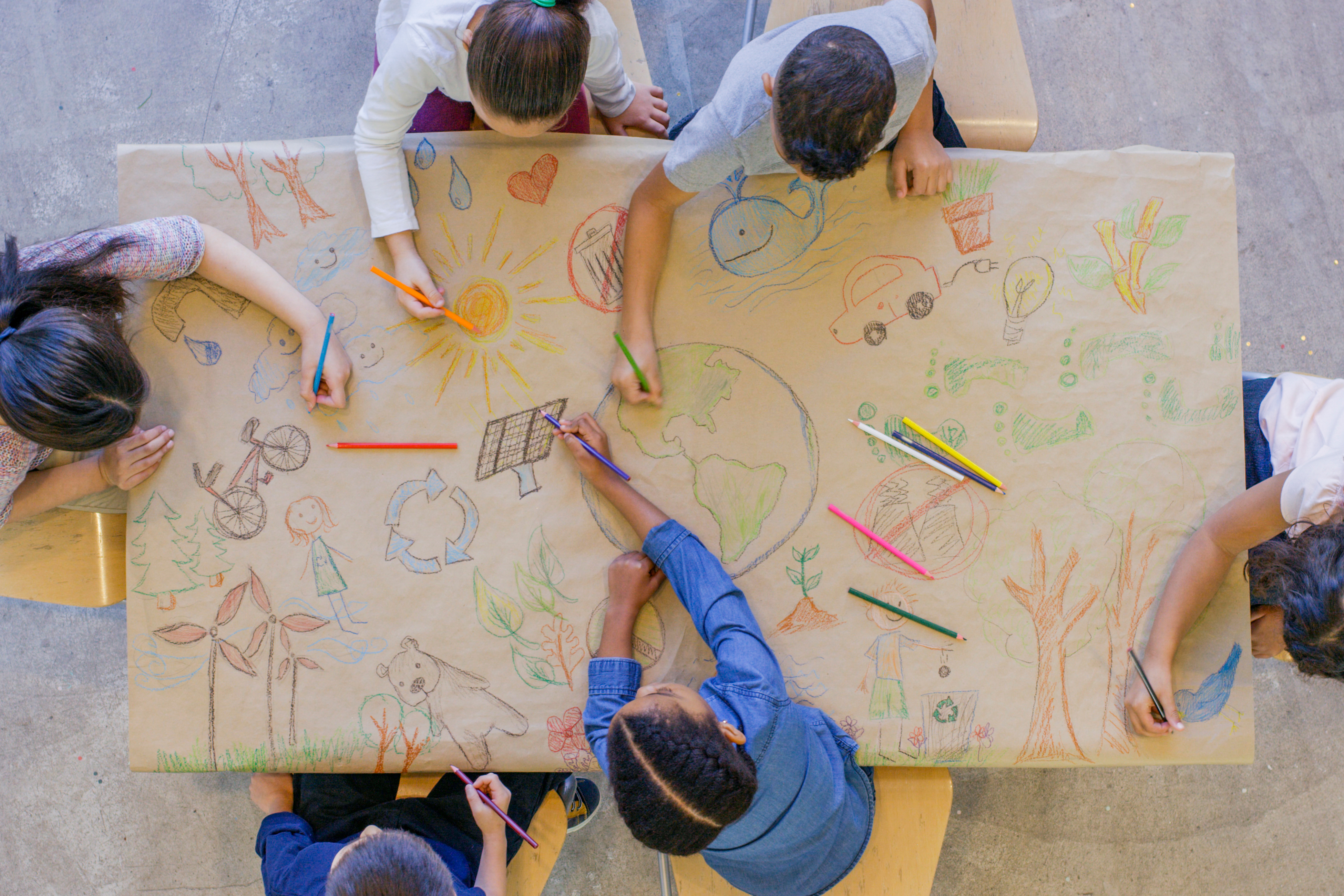COP30 Brasil Bulletin #23 - COP30 Expands Dialogue to Include Children and Teenagers in Conversations About Present and Future of Earth
The Global Ethical Stocktake opens space for participation and recognizes the transformative potential of children and teenagers. Listen to the report and know more.

Report: Rafaela Ferreira / COP30
Voice-over: Enrique Villamil and Laura Frederico
Reporter: The Global Ethical Stocktake (Balanço Ético Geral–BEG–in Portuguese), created by the Brazilian presidency of COP30 to foster dialogue on pathways toward a fairer, more sustainable, and more supportive world, is now broadening the debate to include children and adolescents in this process of shaping the planet’s present and future.
This effort is being carried out by the Presidency of the Republic of Brasil, the Office of the Secretary-General of the United Nations, the Ministry of the Environment and Climate Change (MMA), and the Ministry of Foreign Affairs for Climate Action and Just Transition.
Isis Akemi, General Coordinator of the Department of Environmental Education and Citizenship at the Ministry of the Environment and Climate Change, emphasized the importance of this initiative.
Isis Akemi: All of the challenges related to climate change will be inherited by future generations. The impacts, climatic imbalance—everything we are beginning to face today—tend to worsen in the near future. Children and teenagers must therefore have their voices heard and be able to give their opinions on ways to prevent this collapse from happening and the climate crisis from worsening.
Reporter: Fernanda Oliveira, a consultant with the Department of Environmental Education and Citizenship at the Ministry of the Environment and Climate Change, explained that the methodology of the Global Ethical Stocktake has been adapted to engage with this audience.
Fernanda Oliveira: It is essential that we be very careful while conducting these dialogues so that they do not result in pre-formulated answers. We do not want to hear from children what we expect them to say. We want their contributions to be genuine and spontaneous. That means these dialogues must be led in a way that respects their own forms of expression. Another challenge lies in an emerging reality: climate anxiety, or eco-anxiety. We must bring discussions about the climate and environmental crisis into their world without causing undue concern about their future or humanity’s future.
Reporter: Self-managed Global Ethical Stocktake dialogues with children and teenagers are already underway. These meetings are organized freely and in a decentralized manner by schools, educators, collectives, families, social movements, networks, and communities.
To be considered part of the Global Ethical Stocktake, each initiative must meet three requirements: it must respect the BEG Guidelines for working with children and adolescents; it must involve at least 20 participants between the ages of 11 and 17; and it must respond to at least one of the five common Guiding Questions. These questions address the reduction of greenhouse gas emissions, adaptation to climate change, climate financing, energy transition and low-carbon solutions, and climate justice.
Translation: Tadeu Azevedo (POET/UFC)
Proofreading: Michel Emmanuel Félix François (POET/UFC)

